Chinese Traditional Festivals
The Spring Festival
The Spring Festival,also konwn as the Lunar New Year,is the grandest traditional festival in China.The Spring Festival has a long history and can be traced back to the ancient time,when people worshiped the Heaven at the beginning of the lunar year,an activity first recorded in the Western Han Dynasty(202BC-8AD).From then on,the customs were widely spread and came in many forms. There are many celebrations during the festival,such as worshiping the Heaven and ancestors,staying up all night on New Year's Eve to welcome the coming new year,paying New Year visits,setting off fireworks and firecrackers,and enjoying the lion dance.When the festival is drawing near,Chinese people who have left their hometown will manage to return home to celebrate the New Year's Eve with their family.During the festival,people pay a visit or give a gteeting call to their friends and relatives.The celebration may start from the twenty-third day of the twelfth lunar month until the Lantern Festival(the fifteenth day of the first lunar month),during which celebrations are quite different each day.
The Spring Festival is the best time for Chinese to reunite,a grand ceremony combined by worshiping,celebrating and entertainment,and a symbol of profound Chinese culture.It has inherited rich historical and cultural deposits,and embodies the essence of traditional Chinese culture.In 2006,the Spring Festival was listed by theChinese State Council in the first batch of Intangible Cultural Heritage of the country.Since 1949,Chinese people have enjoyed the annual public holiday of the Spring Festival.
The Lantern Festival
The Lantern Festival(Yuanxiao Festival in Chinese),also known as the Shangyuan Festival,is one of the most important trational festivals.The"yuan"in"yuanxiao"means"to start"and"xiao"means"night".The Lantern Festival is celebrated on the 15th day of the first lunar month,the first full moon of the Chinese lunar calendar,and that's why it is called Yuanxiao Festival.
According to historical records,the Lantern Festival originated in the Western Han Dynasty and was closely related to the introduction of Buddhism.Before the name of "The Lantern Festival"came into being,the fifteenth day of the first lunar month was called"looking out on the first lunar month"(Zhengyue Wang in Chinese),a religious festival at first,but became an entertainment festival in the Sui Dynasty.The name of the festival was officially established in the Tang Dynasty,and evolvef into the most popular carnival in the Song Dynasty.In the Ming Dynasty,people got ten days off during the nationwide celebration while we have inherited most traditions of the festival from the Qing Dynasty.
The main traditional activities to celebrate the Lantern Festival include enjoying the bright full moon,watching lanterns,eating yuanxiao and going to temple fairs.Moreover,appreciating lanterns and guess riddles written on them is a traditional entertaining activity with Chinese characteristic.In addition,there are other regional celebrations such as walking on stilts and performing folk dance.The Lantern Festival is the lasr big event among all the Spring Festival celebrations.In Chinesse people's eyes,the celebration of the Lantern Festival means the conclusion of all the Spring Festival celebration activities.In June 2008,the Lantern Festival was listed by the Chinese State Council in the second batch of Intangible Cutural Heritage of the country.
The Dragon Boat Festival
The Dragon Boat Festival,celebrated on the fifth day of the fifth lunar month,is a traditional Chinese festival.The Dragon Boat Festival is known as one of the four most important and grandest traditional Chinese festivals,the other three beng the Spring Festival,the Mid-Autumn Festival and Qingming Festival.
There are many legends about the origin of the Dragon Boat Festival,the most popular and influential of which is to commemorate Qu Yuan.Qu Yuan was an eminent statesman and poet of the state of Chu during the Warring States Period(475BC-221BC). Domesticall,he advocated promoting able men and upholding judicial justice;he suggested the country fight with the State of Qi against the State Qin.However,due to slanders against him,he was demoted and esiled to the Yuan and Xiang River basin,during which he wrote many immortal poems about his country and people.In 278BC,the Qin army conquered the capital of the State of Chu.Sorrowful and angry,Qu Yuan drowned himself in the Miluo River with a rock in arms to die for his country.It is said that on hearing the death of Qu Yuan,people of Chu were heart-broken.Some expressed their condolences to their beloved poet by the river,some on the boat tried to bring the body up from the wanter,while a fisherman threw food into the river as feed so that fish and prawn would not eat Qu Yuan's body,and then people followed suit.Finally,these food turned into the specialfood in the Dragon Boat Festival-Zongzi(a sticky rice dumpling wrapped in reed leaves).
The Dragon Boat Festival has a history of more than two thousand years,and examples of various customs include dragon boat racing,eating Zongzi,hanging Chinese mugwort leaf and wearing perfume satchels to drive out evil spirits.Nowadays,Chinese regard the Dragon Boat festival less as only a traditional festival than as a time to show patriotism.The world is profoundlyinfluenced by the Dragon Boat Festival and its culture is very influential,because it is widely celebrated in many countries and areas of the world.In 2006,the Dragon Boat Festival was listed by the Chinese State Council in the first batch of Intangible Cultural Heritage of the country.In 2009,the Dragon Boat Festival was added to UNESCO's Intangible Cultural Heritage List and hence becomes the first Chinese festival in UNESCO's Intangible Cultural Heritage List.Since 2008,Chinese people have enjoyed the annual public holiday of the Dragon Boat Festival.
The Qixi Festival
The Qixi Festival,also known as Chinese Valentine's day,falls on the seventh day of the seventh lunar month.
It is recorded that the Qixi Festival was originated in the Han Dynastyand prevailed in the Tang Dynasty.The Qixi Festival is closely related to the folk love story of Niu Lang,a terrestrial cowherd and Zhi Nv,a celestial fairy and a daugther of the Jade Emperor(the supreme Deity of Taoism).According to the legend,Zhi Nv met Niu Lang after she escaped from the Heaven and went down to the earth,and then they pledged to marry without parental consent,starting their happy life in which Niu Lang ploughed and Zhi Nv wove.Later,the Jade Emperor heard the news and he was so furious that he forced Zhi Nv to go back to the Heaven immediately.After that,the couple couldn'tsee each other until the seventh day of the seventh lunar month every year.Finally,their love story moved magpies and they gathered to build a rainbow bridge,on which the couple could meet. Looking up at the clear sky,we can see teo bright stars on both sides of the Milky Way: the Vega(Zhi Nv Star in Chinese)and the Altair(Niu Lang Star in Chinese).It is said that on the Qixi Festival,under the grapevine,people can hear Niu Lang and Zhi Nv pouring out their hearts to each other.
There are many customs on the Qixi Festival,including worshiping stars to make a wish, ladies doing needlework by moonlight to pray for wisdorn,letting spiders spin webs in a case to pray for luck ,putting a needle on the surface of water exposed to the sun for a day to pray for happiness,and wrapping a bundle of bean sprouts planted few days before the festival to pray for having more descendants. Nowadays, celebrations in Qixi are mainly about romantic relationships.
The Mid-Autumn Festival
The Mid-Autumn Festival is the second most important traditional festival in China after the Spring Festival.It is celebrated on the 15th day of the 8th lunar month. A year is divided into four seasons:spring,summer,autumn and winter,and according to traditional Chinese calendar,each season is further divided into three phases.The 8th lunar month is the second month in autumn,and the 15th day is in the middle of the month.That's how the festival gets its name-the Mid-Autumn Festival.
The Mid-Autumn Festival originatedfrom the ancient people's worship of the moon.In the documents of the Western Han Dynasty,there are records of Chang'e fluing to the moon,and Wu Gang cutting an osmanthus.The festival came into being in the Song Dynasty and became important in the Ming and Qing Dynasties.
Celebrations during the Mid-Autumn Festival are worshipng and appreciating the moon, eating mooncakes,enjoying osmanthus blossoms and drinking wine fermented with osmanthus flowers,all of which cab date back to the ancient time.'Family reunion'is the theme of the Mid-Autumn Festival,dyrubg which the full moon means the full attendance of family members,and the mooncake is a symbol of chershing.Chinese culture has such a buge influence that the Mid-Autumn Festival has been introduced into countries in East and Southeast Asia,and is greatly treasured by overseas Chinese there.
In 2006, the Mid-Autumn Festival was listed by the Chinese State Council in the first batch of Intangible Cultural Heritage of the country.Since 2008,Chinese people have enjoyed the annual public holiday of the Mid-Autumn Festival.
Chinese New Year's Eve
Chinese New Year's Eve is the last night of the lunar New Year,that is,the night before the Spring Festival.In China,the New Year's Eve id of great importance,because for Chinese, it is a time when one grows one year older,and the nighe connects the past year and the new year.
Chinese New Year's Eve has a long history,the earliest record of which can be seen in Master Lv's Spring and Autumn Annals.On New Year's Eve,Chinese families gather for a reunion dinner to talk about the past and share their dreams about their future.They often stay up all night to welcome the coming new year,which is tremendously important for Chinese people.In ancient China,some prisoners were even allowed to go home to spend the night with their families.On New Year's Eve,every household is brightly lit, known as "a year of light",showing people's aspiration to drive away all evils and diseases,and have a happy new year. Nowadays, with improvement of people's livelihood, watchinng Spring Festival Gala on New Year's Eve has become an important activity. Although customs vary from place to place,it has become an indispensable part of New Year'Eve celebration to worship the ancestors,set off fireworks ang firecrackers before eating the reunion dinner,and after it,give lucky money to the younger generations.




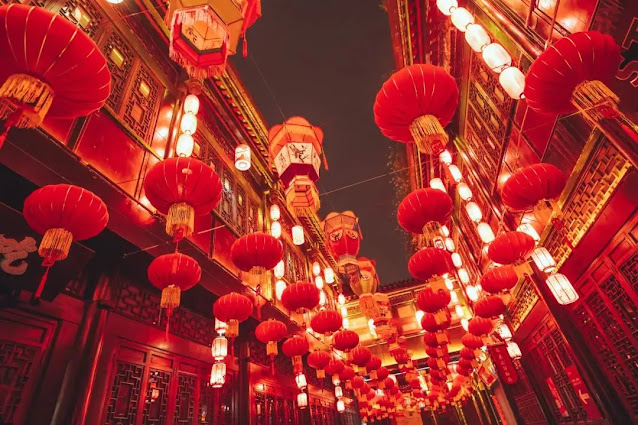
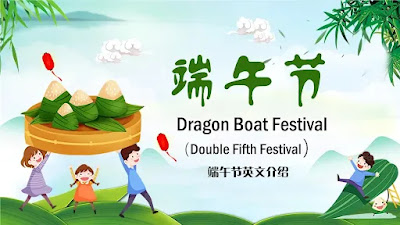
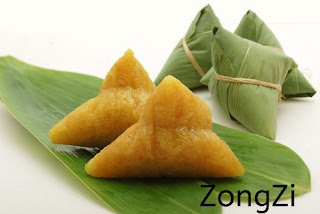
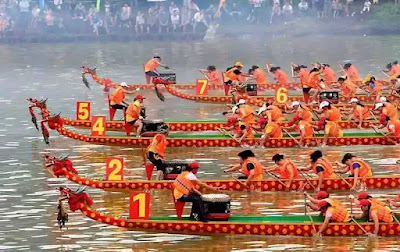




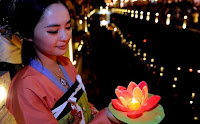

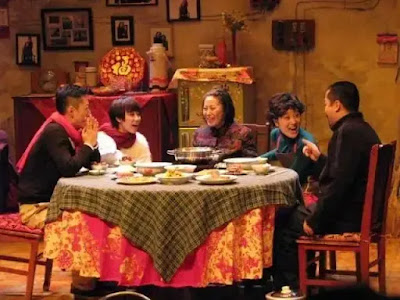
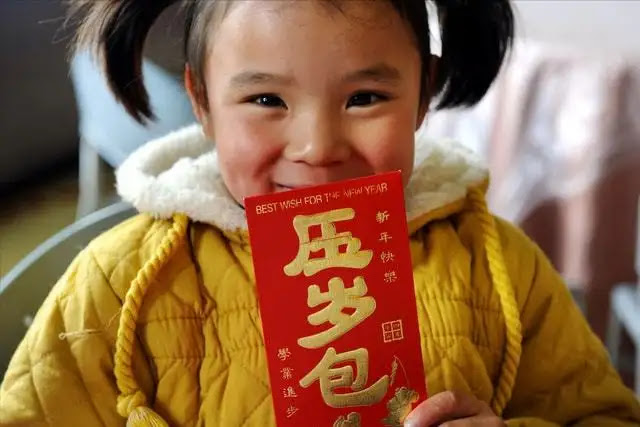









No comments